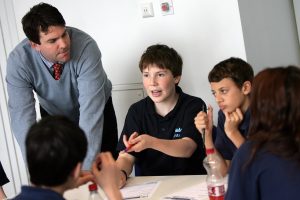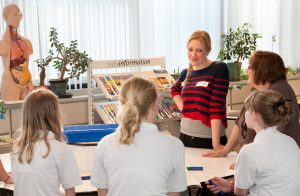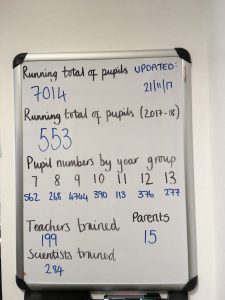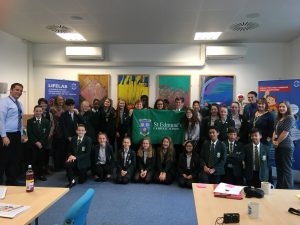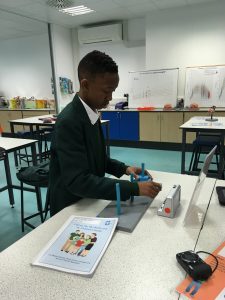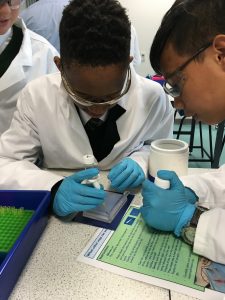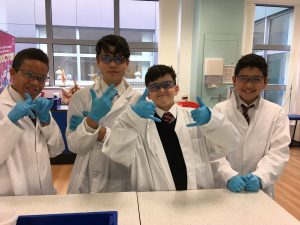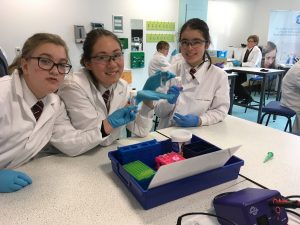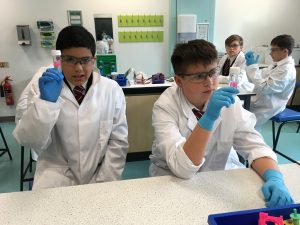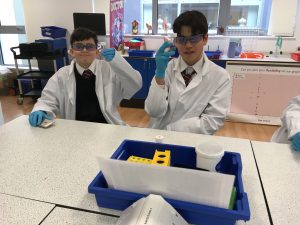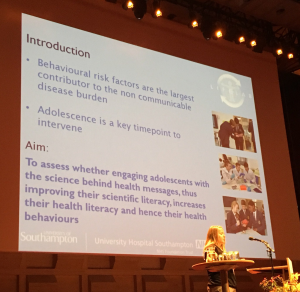The LifeLab team supported the recent Health and Wellbeing conference, organised by the University of Southampton’s Education School.
Professionals from across primary, secondary and further education sectors took part in the day which involved participating in a series of workshops and sessions aimed at developing expertise in the Personal, Social, Health and Economic (PSHE) area of the curriculum.
Here teaching fellow Lisa Bagust, talks about how the conference provided an opportunity to showcase LifeLab’s work.
One of our aims at the recent Health and Wellbeing Conference was to increase participation of schools and students in the Youth Health Champions programme through engagement with LifeLab.
The Health and Wellbeing conference provided a fantastic opportunity to introduce trainee secondary teachers to the RSPH Level 2 Award in Youth Health Champions and explain how LifeLab delivers the modules and supports students and schools in gaining their award.
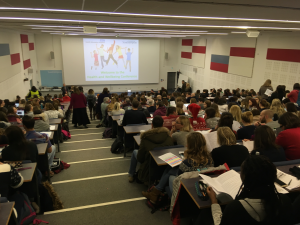
The award is a qualification pupils obtain and enables them to provide peer support through an understanding of the individual and social drivers of healthy and unhealthy behaviours, as well as signposting to local health services.
It also provides them with the knowledge of health and wellbeing issues relevant to them and develops their skills to deliver positive health messages to their peers.
Pupils understand the benefits of a healthy lifestyle, and are more likely to approach and listen to their peers and develop skills for the workplace.
There are also benefits for the school too as the scheme improves the health and wellbeing of students and staff, increases health literacy, improves links between young people’s services and reduces bullying.
The LifeLab programme offers a fully resourced, curriculum-linked science module for Year 8/9 students that is based on science research being carried out at the University and the hospital.
The programme encourages young people to examine the science behind health messages and how their own choices could affect their health in later life.
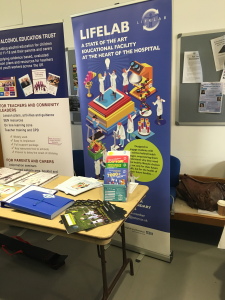
Our package includes CPD for teachers, all resources and transport costs and supply cover for the visit to LifeLab. There is also the option of undertaking the Youth Health Champions Level 2 award for those students selected to complete an additional three modules.
Trainee teachers at the Health and Wellbeing conference had the opportunity to try out some of the LifeLab resources that pupils enjoy during the programme. That included hands-on activities like playing a card game, when players are posed questions like what the biggest causes of death were in the UK and how they have changed over time.
Those taking part in the workshops also played the Tower of Risk game when they were asked what they believe are the biggest risk to their health was and what they could do to reduce that risk. Alongside getting to grips with the resources participants also familiarised themselves with the aims of the Youth Health Champions award.
At the conference we were told how a recent evidence review had shown how PSHE education supported academic success while other research had shown that pupils with better health and wellbeing are likely to achieve better academically, underlining how important developing this area of the curriculum is.
